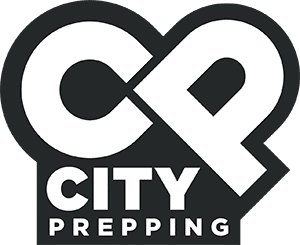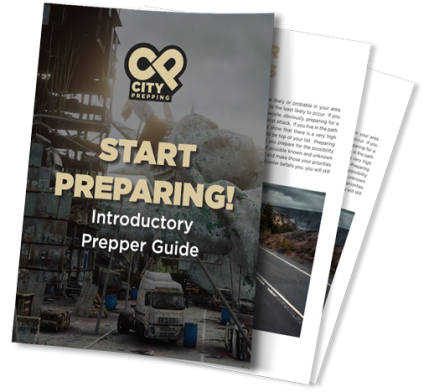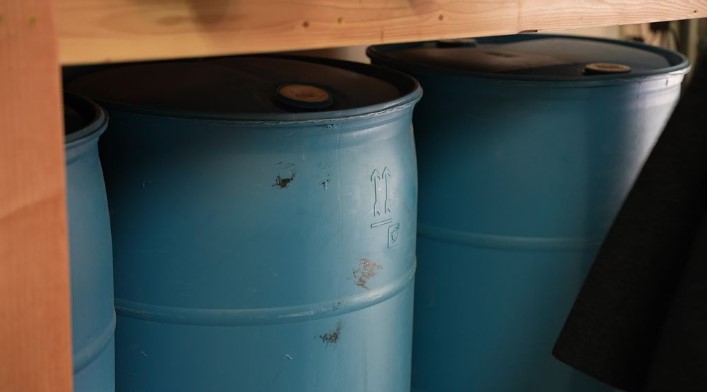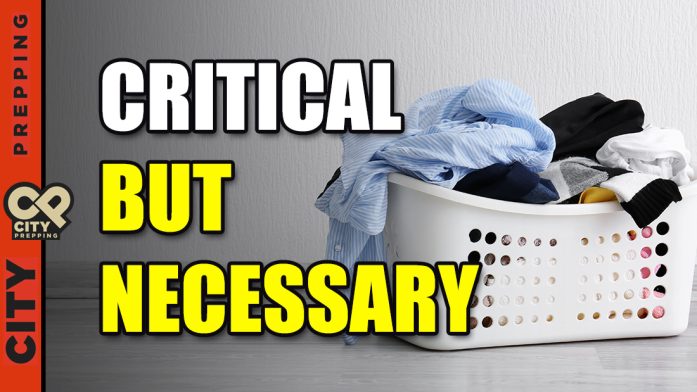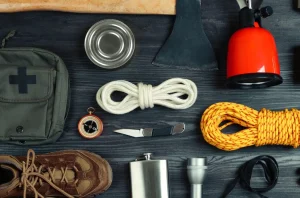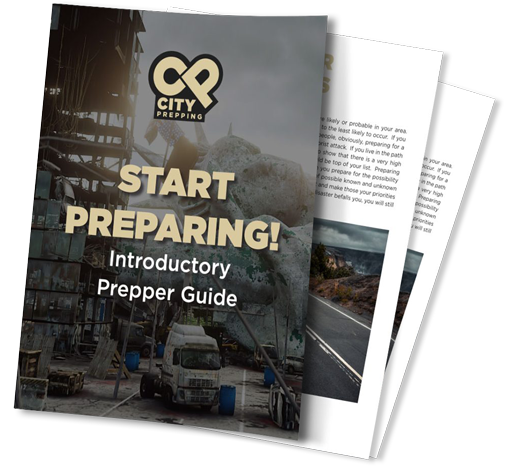- Why It Matters to You
- Simplify Your Finances
- See Danger as Opportunity
- Diversify
- Consolidate
- Stock Up
- Invest in Yourself
- Fire as a Tool
- Preserving Your Food
- Recognize Suffering
- Why It Matters To You
 The first thing to do before a stock market crash is to realize that it will dramatically impact your life. This is hard for most Americans to understand. Only about 14% of Americans are directly invested in individual stocks. About 52% of Americans own stocks as part of a retirement fund. In that format, they are meant as stable value retention tools. Typically, they are a buy-and-hold strategy with a late maturity date. While they might lose a third or half their value in a nasty crash, the retirement account owner would likely be back to the pre-crash value in five to ten years. Retirement accounts that hold securities are meant to be at a maximum value at a person’s retirement– ten, twenty, thirty, forty, or fifty years into the future.
So with such little real ownership and with the majority of American’s owning stock in a long-term buy and hold strategy, many people believe that a stock market crash will not impact them. After all, if the fat cat on Wall Street loses his shirt, how could that possibly affect me? These tend to be the same people who are unaware of how dependent they are on infrastructure systems and cannot be self-sufficient.
Stock is all of the shares into which ownership of a corporation is divided. A single share of the stock represents fractional ownership of the corporation in proportion to the total number of shares. Stock value is part of a company’s valuation method. If the company wants to generate capital for significant upgrades, they could sell stock, or they could borrow capital from financial institutions based upon their stock value, inventory, and capital equipment. If the company is, let’s say, engaged in manufacturing widgets used to harden off electrical components against freezing temperatures, what happens when their stock value plummets so low that their valuation and creditworthiness suffer and they are no longer able to get the raw materials to manufacture widgets? If the company transports food from the farm to the processing plant, what happens when they have to lay off truckers or selloff trucks or raise prices for their services? If the company processes food, what happens when it can no longer get the electricity it needs or the delivery of foods and raw materials it needs? I could go on and on about case after case, but suffice it to say that when one system fails, we can usually compensate for it. When many systems fail, we run out of workarounds at some point. That fat cat on Wall Street probably just takes the loss. You, the average consumer, have to learn to live without the product– even if that’s food. Are you ready to grow your own oats, corn, or beans? Are you ready to grind your own flour?
So, the first thing you can do is take a deeper dive into understanding how failure in the larger system out there can impact you in your safe home or apartment. If you suddenly couldn’t get anything from any store or manufacturer or utility provider, how bad off would you be? Becoming even a little more self-sufficient will position you better when suffering through a market crash. When the stock market falls, unemployment numbers skyrocket, as businesses have to trim their workforce to make ends meet. At the same time, inflation can leap up, pricing goods out of the reach of many Americans. Even those who don’t own any stock tighten up their purse strings and delay or cancel purchases. This chills the economy even further. When farmers cannot find low-wage immigrant workers, cannot afford storage costs, cannot secure transport for their product or processing facilities wanting to buy their product in a time of decreased production, or the price for their product rises or drops dramatically, crops can end up rotting in the fields. When the workforce is reduced at a city, State, or Federal level, services you rely upon can also be slowed or cut altogether. When the chaos of the market crash occurs, the first thing you must do is focus on what you can control: your attitude, your outlook, your preps, and your actions.
The first thing to do before a stock market crash is to realize that it will dramatically impact your life. This is hard for most Americans to understand. Only about 14% of Americans are directly invested in individual stocks. About 52% of Americans own stocks as part of a retirement fund. In that format, they are meant as stable value retention tools. Typically, they are a buy-and-hold strategy with a late maturity date. While they might lose a third or half their value in a nasty crash, the retirement account owner would likely be back to the pre-crash value in five to ten years. Retirement accounts that hold securities are meant to be at a maximum value at a person’s retirement– ten, twenty, thirty, forty, or fifty years into the future.
So with such little real ownership and with the majority of American’s owning stock in a long-term buy and hold strategy, many people believe that a stock market crash will not impact them. After all, if the fat cat on Wall Street loses his shirt, how could that possibly affect me? These tend to be the same people who are unaware of how dependent they are on infrastructure systems and cannot be self-sufficient.
Stock is all of the shares into which ownership of a corporation is divided. A single share of the stock represents fractional ownership of the corporation in proportion to the total number of shares. Stock value is part of a company’s valuation method. If the company wants to generate capital for significant upgrades, they could sell stock, or they could borrow capital from financial institutions based upon their stock value, inventory, and capital equipment. If the company is, let’s say, engaged in manufacturing widgets used to harden off electrical components against freezing temperatures, what happens when their stock value plummets so low that their valuation and creditworthiness suffer and they are no longer able to get the raw materials to manufacture widgets? If the company transports food from the farm to the processing plant, what happens when they have to lay off truckers or selloff trucks or raise prices for their services? If the company processes food, what happens when it can no longer get the electricity it needs or the delivery of foods and raw materials it needs? I could go on and on about case after case, but suffice it to say that when one system fails, we can usually compensate for it. When many systems fail, we run out of workarounds at some point. That fat cat on Wall Street probably just takes the loss. You, the average consumer, have to learn to live without the product– even if that’s food. Are you ready to grow your own oats, corn, or beans? Are you ready to grind your own flour?
So, the first thing you can do is take a deeper dive into understanding how failure in the larger system out there can impact you in your safe home or apartment. If you suddenly couldn’t get anything from any store or manufacturer or utility provider, how bad off would you be? Becoming even a little more self-sufficient will position you better when suffering through a market crash. When the stock market falls, unemployment numbers skyrocket, as businesses have to trim their workforce to make ends meet. At the same time, inflation can leap up, pricing goods out of the reach of many Americans. Even those who don’t own any stock tighten up their purse strings and delay or cancel purchases. This chills the economy even further. When farmers cannot find low-wage immigrant workers, cannot afford storage costs, cannot secure transport for their product or processing facilities wanting to buy their product in a time of decreased production, or the price for their product rises or drops dramatically, crops can end up rotting in the fields. When the workforce is reduced at a city, State, or Federal level, services you rely upon can also be slowed or cut altogether. When the chaos of the market crash occurs, the first thing you must do is focus on what you can control: your attitude, your outlook, your preps, and your actions.
- Simplify Your Finances
 In preparation for a crash or in the first few hours and days following a crash, you have to simplify your finances. You have to squeeze every last penny out of your dollars. The first step of this, just like those businesses losing money, is to trim the fat. Cancel gym memberships, reduce or eliminate cable bills, cut online subscription services, consider selling off that second car if you don’t need it. Will you need that trailer to go on vacation now or next year? Probably not, but during an economic downturn, the price for mobile homes and trailers shoots up dramatically. Sell things through local online exchanges that you have meant to get rid of anyways. Unload what you don’t need to raise capital and hold on to the money that flows from you. If it doesn’t have real, tangible value for you through an economic crisis, this is your opportunity to clean house and realign your priorities. Prioritize food, water, shelter, and utilities. Those are what will get you through.
In preparation for a crash or in the first few hours and days following a crash, you have to simplify your finances. You have to squeeze every last penny out of your dollars. The first step of this, just like those businesses losing money, is to trim the fat. Cancel gym memberships, reduce or eliminate cable bills, cut online subscription services, consider selling off that second car if you don’t need it. Will you need that trailer to go on vacation now or next year? Probably not, but during an economic downturn, the price for mobile homes and trailers shoots up dramatically. Sell things through local online exchanges that you have meant to get rid of anyways. Unload what you don’t need to raise capital and hold on to the money that flows from you. If it doesn’t have real, tangible value for you through an economic crisis, this is your opportunity to clean house and realign your priorities. Prioritize food, water, shelter, and utilities. Those are what will get you through.
- See Crisis as Opportunity
 In every crisis, there is also an opportunity. Sometimes we become complacent, or we just cannot seem to find the time to do what we know we probably should do. Immediately preceding or following a stock market crash, your opportunity to make substantive changes to your finances will be short. Can you pay off your car and still have some savings in the bank? While you still have secure employment, can you refinance your house and raise capital by retaining the month or two mortgage payment while it is processing and also lower your monthly mortgage payment? It may seem counterintuitive to allocate more money to your employer’s 401k plan or startup a traditional IRA. Still, these are pre-tax dollars, and if your employer matches any percent of it, you are instantly making a return on your money and likely buying into stocks at rock bottom prices. Your post-market crash recovery will be even better. Because these are pre-tax dollars, raising your contribution a hundred dollars will barely show up on your take-home pay. I have seen some people do this and end up taking home more because it just bumped them off the cusp of a tax bracket. Let the brewing economic storm be what you need to seize the opportunity to batten down your personal finances.
In every crisis, there is also an opportunity. Sometimes we become complacent, or we just cannot seem to find the time to do what we know we probably should do. Immediately preceding or following a stock market crash, your opportunity to make substantive changes to your finances will be short. Can you pay off your car and still have some savings in the bank? While you still have secure employment, can you refinance your house and raise capital by retaining the month or two mortgage payment while it is processing and also lower your monthly mortgage payment? It may seem counterintuitive to allocate more money to your employer’s 401k plan or startup a traditional IRA. Still, these are pre-tax dollars, and if your employer matches any percent of it, you are instantly making a return on your money and likely buying into stocks at rock bottom prices. Your post-market crash recovery will be even better. Because these are pre-tax dollars, raising your contribution a hundred dollars will barely show up on your take-home pay. I have seen some people do this and end up taking home more because it just bumped them off the cusp of a tax bracket. Let the brewing economic storm be what you need to seize the opportunity to batten down your personal finances.
- Diversify
 When we hear “diversify” in financial settings, it means not having all your money in one place. Having money in cryptocurrency, stocks, bonds, commodities, precious metals, and things of that nature will definitely help you in the recovery phase of an economic collapse. Still, they’ll have little value if you need to buy a loaf of bread or a 25-pound bag of flour. I see diversify as a broader term. You have to diversify yourself and generate other revenue streams for yourself. It’s hard to get a job when businesses aren’t hiring, but have you ever considered teaching a class in your neighborhood, selling your baked goods, fixing someone’s car, or leveraging in any way your unique skills. I knew someone who mowed lawns every Saturday. He didn’t need to do that to survive. He mowed lawns to get tackle, bait, and fuel for his little boat. He would then catch Catfish on the Missouri River and then sell it out of the freezer in his garage. On Mondays, he went to his regular job like everyone else. Any side hustle like food delivery or rideshare services can add a little extra income. That extra income, when combined with the trimming and refinancing you just did, might be enough to carry you through.
Diversify yourself. It might lead you to a more enjoyable occupation when the markets recover. Even if it doesn’t, you will be cultivating the most important resource you have– yourself.
When we hear “diversify” in financial settings, it means not having all your money in one place. Having money in cryptocurrency, stocks, bonds, commodities, precious metals, and things of that nature will definitely help you in the recovery phase of an economic collapse. Still, they’ll have little value if you need to buy a loaf of bread or a 25-pound bag of flour. I see diversify as a broader term. You have to diversify yourself and generate other revenue streams for yourself. It’s hard to get a job when businesses aren’t hiring, but have you ever considered teaching a class in your neighborhood, selling your baked goods, fixing someone’s car, or leveraging in any way your unique skills. I knew someone who mowed lawns every Saturday. He didn’t need to do that to survive. He mowed lawns to get tackle, bait, and fuel for his little boat. He would then catch Catfish on the Missouri River and then sell it out of the freezer in his garage. On Mondays, he went to his regular job like everyone else. Any side hustle like food delivery or rideshare services can add a little extra income. That extra income, when combined with the trimming and refinancing you just did, might be enough to carry you through.
Diversify yourself. It might lead you to a more enjoyable occupation when the markets recover. Even if it doesn’t, you will be cultivating the most important resource you have– yourself.
- Consolidate
 Do you have more than one credit card, but one of them just offered you one of those zero interest checks? Now is the time to consolidate your debt to one low-interest card. Making one minimum payment is going to be easier than making two. Even if your credit card company hasn’t sent you a check, now would be a good time to give them a call and see if they’re willing to pay off your other card through a no-interest loan. Ideally, if you are genuinely prepping, you know how bad credit card debt is for you and you’ve been working on a plan to rid yourself of it. Any financial moves you want to make may not be possible three months into a deepening economic crisis, as banks will be overloaded and then just stop offering many services.
Understand, hereto, that “consolidation” goes beyond just the financial term. By definition, it means “the action or process of combining a number of things into a single more effective or coherent whole.” Consolidating your buying power by buying in bulk or forming a buyer’s club of friends and family that buy in bulk together serves two purposes. It gets you more for your money, and it builds a network and community to help you get through even the most challenging financial times. So, think of consolidation as a debt management tool, but also understand that it means to pool all your resources, including human resources, to create “a single more effective or coherent whole.”
Do you have more than one credit card, but one of them just offered you one of those zero interest checks? Now is the time to consolidate your debt to one low-interest card. Making one minimum payment is going to be easier than making two. Even if your credit card company hasn’t sent you a check, now would be a good time to give them a call and see if they’re willing to pay off your other card through a no-interest loan. Ideally, if you are genuinely prepping, you know how bad credit card debt is for you and you’ve been working on a plan to rid yourself of it. Any financial moves you want to make may not be possible three months into a deepening economic crisis, as banks will be overloaded and then just stop offering many services.
Understand, hereto, that “consolidation” goes beyond just the financial term. By definition, it means “the action or process of combining a number of things into a single more effective or coherent whole.” Consolidating your buying power by buying in bulk or forming a buyer’s club of friends and family that buy in bulk together serves two purposes. It gets you more for your money, and it builds a network and community to help you get through even the most challenging financial times. So, think of consolidation as a debt management tool, but also understand that it means to pool all your resources, including human resources, to create “a single more effective or coherent whole.”
- Stock-Up
 Runs on stores and failures in the food supply chain from farm to table will happen after a stock market crash. Inflation or hyperinflation are also possible contributors to the empty grocery aisles you may see. Remember that surreal trip to your local grocery store when COVID-19 was declared a pandemic? The pasta aisle and canned goods aisle, and meat department were empty or sparse. Now is the time to top off your food storage. Now is the time to kick that garden into high gear with a few extra plants. If the crash sinks into a deep recession or an economic depression, you will be glad you did.
If the dollar’s value declines and the inflation hits hard after an economic crash, having several thousand in the bank won’t matter too much. Sure, make sure you have an emergency fund if you can, but if you have extra funds, having them sit on the sidelines won’t do you much good. I am not a financial advisor, but several I follow indicate that a stock market crash is a good time to stock-up on stocks when they’re on the sale. This is what the wealthy do and how many became wealthy to begin with. Really solid conglomerate stocks often decline drastically along with everything else. It creates a buying opportunity for you, just like maxing out your 401k does. If the depression sinks the world into a dystopia, post-apocalyptic wasteland, those dollars in the bank won’t matter anyway. Again, make sure you have enough to cover your needs, but any extra you may want to apply to stocking-up.
Runs on stores and failures in the food supply chain from farm to table will happen after a stock market crash. Inflation or hyperinflation are also possible contributors to the empty grocery aisles you may see. Remember that surreal trip to your local grocery store when COVID-19 was declared a pandemic? The pasta aisle and canned goods aisle, and meat department were empty or sparse. Now is the time to top off your food storage. Now is the time to kick that garden into high gear with a few extra plants. If the crash sinks into a deep recession or an economic depression, you will be glad you did.
If the dollar’s value declines and the inflation hits hard after an economic crash, having several thousand in the bank won’t matter too much. Sure, make sure you have an emergency fund if you can, but if you have extra funds, having them sit on the sidelines won’t do you much good. I am not a financial advisor, but several I follow indicate that a stock market crash is a good time to stock-up on stocks when they’re on the sale. This is what the wealthy do and how many became wealthy to begin with. Really solid conglomerate stocks often decline drastically along with everything else. It creates a buying opportunity for you, just like maxing out your 401k does. If the depression sinks the world into a dystopia, post-apocalyptic wasteland, those dollars in the bank won’t matter anyway. Again, make sure you have enough to cover your needs, but any extra you may want to apply to stocking-up.
- Invest in Yourself
 Light a fire under yourself. Get motivated. Read, learn, and retool your skill sets. If the insecurity of the markets, the lockdowns and sicknesses, the cyberattacks, and the wild and extreme weather isn’t enough, if there isn’t something in there that motivates you to pay attention and prepare yourself for the same or even worse, I don’t know what will. Use that time you reclaimed spent on entertainment like watching television or going out to learn a new, practical skill you can apply in your life.
Every skill you learn and even slightly master is like putting money in your own personal savings account. When you need to make a withdrawal, you are paying yourself back with interest. You may have always told yourself that you were going to learn Spanish, learn to knit, learn to cook, learn to do whatever. If your land affords you the possibility, could you be learning how to raise bees or raise chickens? Well, now more than ever is the time. Just making those connections with people who already tend bees or chickens might keep you in honey and eggs when times get even more challenging. If you never master any of the skills and only end up with a cursory understanding of them, you will at the very least have entertained yourself and kept your mind busy. At the very best, you will have a skill when you need it, or a skill you can cultivate as a resource to, literally, bring more to the table.
Light a fire under yourself. Get motivated. Read, learn, and retool your skill sets. If the insecurity of the markets, the lockdowns and sicknesses, the cyberattacks, and the wild and extreme weather isn’t enough, if there isn’t something in there that motivates you to pay attention and prepare yourself for the same or even worse, I don’t know what will. Use that time you reclaimed spent on entertainment like watching television or going out to learn a new, practical skill you can apply in your life.
Every skill you learn and even slightly master is like putting money in your own personal savings account. When you need to make a withdrawal, you are paying yourself back with interest. You may have always told yourself that you were going to learn Spanish, learn to knit, learn to cook, learn to do whatever. If your land affords you the possibility, could you be learning how to raise bees or raise chickens? Well, now more than ever is the time. Just making those connections with people who already tend bees or chickens might keep you in honey and eggs when times get even more challenging. If you never master any of the skills and only end up with a cursory understanding of them, you will at the very least have entertained yourself and kept your mind busy. At the very best, you will have a skill when you need it, or a skill you can cultivate as a resource to, literally, bring more to the table.
- Fire as a Tool
 For all the thousands upon thousands of years man has utilized fire, it is surprising that the average person does not know the basics of wielding it or how ubiquitous it is even when you don’t see flames. The average American who doesn’t smoke probably could not light a fire easily. Beyond that, most Americans don’t understand how fire somewhere is lighting their house and heating or cooling their home. The average American doesn’t truly grasp the fact that explosions of fire are driving the engines that take them to work or fly them through the sky. Fire is a tool, and you need to understand its many uses to you and your dependence upon it for your survival.
Any prolonged economic collapse may also have intermittent or somewhat permanent disruptions in service. If gas prices skyrocket, those fires in your car’s engine aren’t going to be able to burn. If utilities are disrupted or go offline because maintenance schedules can keep step or municipalities can’t keep them funded, you will need to heat or cool your own home. Oil, natural gas, propane, and other fossil fuels may be in reduced supply or at exorbitant costs. You may need to boil your own water, and you won’t have electricity or gas to do so. You may need to light your own home. If you don’t have electricity, do you have a better candle than the lavender, eucalyptus, or melon scented and regifted candle you got this Christmas?
As a prepper, understand your relationship to fire as a tool and equip yourself to wield it confidently. It may seem odd to some to tie fire in with a stock market crash, but understanding your relationship, supply, and ability to supply yourself with fire, water, shelter, and food are what every single one of your preps circulates around. Make sure you have alternate sources of energy to provide you with heat and light. Understand your relationship with fire and have alternate means for cooking food and boiling water. Think about your reliance upon fire and develop a long-term plan to sustain you through the worst of economic times.
For all the thousands upon thousands of years man has utilized fire, it is surprising that the average person does not know the basics of wielding it or how ubiquitous it is even when you don’t see flames. The average American who doesn’t smoke probably could not light a fire easily. Beyond that, most Americans don’t understand how fire somewhere is lighting their house and heating or cooling their home. The average American doesn’t truly grasp the fact that explosions of fire are driving the engines that take them to work or fly them through the sky. Fire is a tool, and you need to understand its many uses to you and your dependence upon it for your survival.
Any prolonged economic collapse may also have intermittent or somewhat permanent disruptions in service. If gas prices skyrocket, those fires in your car’s engine aren’t going to be able to burn. If utilities are disrupted or go offline because maintenance schedules can keep step or municipalities can’t keep them funded, you will need to heat or cool your own home. Oil, natural gas, propane, and other fossil fuels may be in reduced supply or at exorbitant costs. You may need to boil your own water, and you won’t have electricity or gas to do so. You may need to light your own home. If you don’t have electricity, do you have a better candle than the lavender, eucalyptus, or melon scented and regifted candle you got this Christmas?
As a prepper, understand your relationship to fire as a tool and equip yourself to wield it confidently. It may seem odd to some to tie fire in with a stock market crash, but understanding your relationship, supply, and ability to supply yourself with fire, water, shelter, and food are what every single one of your preps circulates around. Make sure you have alternate sources of energy to provide you with heat and light. Understand your relationship with fire and have alternate means for cooking food and boiling water. Think about your reliance upon fire and develop a long-term plan to sustain you through the worst of economic times.
- Preserving Your Food
 I am a huge proponent of eating your preps. After any crisis, one as large as a grid down or as small as a stock market crash or unemployment, it’s not the time to suddenly and drastically alter your diet, learn to cook hard beans or remain reliant on fragile food supply chains. When I say preserve your food, I mean a lot. I mean, start to ration and reduce your overall consumption. I mean, try to eat every last bit of what you make. I mean, try to prepare every scrap of food that crosses your kitchen counter. Don’t throw out the broccoli stem or carrot tops. Do you grow artichokes? That whole stem is nothing but excellent artichoke meat when boiled along with the head. I just saw a recipe for pea shell puree. When I say preserve your food, I also mean reducing your dependence on restaurants that are too expensive, or grocery stores that may have wildly fluctuating supplies and prices, or industrial farmers whose quality of product may suffer in a deep enough economic downturn. Grow your own food, if you can. Get local and buy from the beekeepers, egg producers, small gardeners, small farmers, jam makers, and so forth. Learn to forage your environment. Preserve the flow of food to your table.
Sure, if you want to learn how to dehydrate everything, can anything, or pickle something, absolutely do so; but think of preserving your food as also preserving the flow of food to your table. Be in the habit of saving money and cooking your supplies, so you know how to sustain yourself independent of fragile, just-in-time delivery systems and through the hardest of times.
I am a huge proponent of eating your preps. After any crisis, one as large as a grid down or as small as a stock market crash or unemployment, it’s not the time to suddenly and drastically alter your diet, learn to cook hard beans or remain reliant on fragile food supply chains. When I say preserve your food, I mean a lot. I mean, start to ration and reduce your overall consumption. I mean, try to eat every last bit of what you make. I mean, try to prepare every scrap of food that crosses your kitchen counter. Don’t throw out the broccoli stem or carrot tops. Do you grow artichokes? That whole stem is nothing but excellent artichoke meat when boiled along with the head. I just saw a recipe for pea shell puree. When I say preserve your food, I also mean reducing your dependence on restaurants that are too expensive, or grocery stores that may have wildly fluctuating supplies and prices, or industrial farmers whose quality of product may suffer in a deep enough economic downturn. Grow your own food, if you can. Get local and buy from the beekeepers, egg producers, small gardeners, small farmers, jam makers, and so forth. Learn to forage your environment. Preserve the flow of food to your table.
Sure, if you want to learn how to dehydrate everything, can anything, or pickle something, absolutely do so; but think of preserving your food as also preserving the flow of food to your table. Be in the habit of saving money and cooking your supplies, so you know how to sustain yourself independent of fragile, just-in-time delivery systems and through the hardest of times.
- Recognize Suffering
 Finally, recognize suffering. Here too, I mean this in a very broad sense. I want to leave it up to you to determine what recognizing suffering means to you, but I will get a little philosophical. When you recognize that everyone is suffering along with you through a stock market crash and subsequent economic downturn, you will realize you are not alone. This will increase your compassion and your understanding. This will give you confidence that you are not alone and you can get through this. Coping with the unknown creates uncertainty. Uncertainty for many manifests itself in fear then anger. Understand that others may be suffering more than you. Recognize, too, that others may be suffering more than you. Is there a way you can show compassion and help them?
You will be surprised how your act of kindness towards another gives you also what you need to make it through. I once heard it said that when you feed a person in need, you feed yourself as well. I believe that. Even beyond food, though, have you ever offered to help a neighbor? Even though you give freely, there almost always is an immediate return on your time and labor investment. When you shovel a neighbor’s driveway for them because you know they have a bad back, see if you don’t get something baked for you, or a good word placed for you, or some other gift in return.
Understand, just as you understand a stock market crash is not just confined to pain for the fat cats on Wall Street, that everyone in the economy will suffer in some way. Recognize that suffering to keep pressing on to better days. Recoveries always happen. Even if a recovery doesn’t come and our country’s fabric unravels forever, you will have built a new network and self-reliant ways.
Conclusion
After every economic crash in our history, people say, “Nobody knew that was about to happen.” A few months later, they say, “We should have seen all these signs.” Then, they invariably say, “Well, next time.” If you start preparing now for “next time,” you will find yourself positioned to survive even the worst of economic downturns. Don’t wait for later but act while you can. If you wait until the day of or the weeks before, you can still be prepared, but you will not be as prepared as you could be. If you do as hundreds of millions of Americans are doing right now…nothing…you will have to suffer the worst of the storm with the rest of the herd. Use this time to prepare before the stock market crashes.
As always, please stay safe out there.
Finally, recognize suffering. Here too, I mean this in a very broad sense. I want to leave it up to you to determine what recognizing suffering means to you, but I will get a little philosophical. When you recognize that everyone is suffering along with you through a stock market crash and subsequent economic downturn, you will realize you are not alone. This will increase your compassion and your understanding. This will give you confidence that you are not alone and you can get through this. Coping with the unknown creates uncertainty. Uncertainty for many manifests itself in fear then anger. Understand that others may be suffering more than you. Recognize, too, that others may be suffering more than you. Is there a way you can show compassion and help them?
You will be surprised how your act of kindness towards another gives you also what you need to make it through. I once heard it said that when you feed a person in need, you feed yourself as well. I believe that. Even beyond food, though, have you ever offered to help a neighbor? Even though you give freely, there almost always is an immediate return on your time and labor investment. When you shovel a neighbor’s driveway for them because you know they have a bad back, see if you don’t get something baked for you, or a good word placed for you, or some other gift in return.
Understand, just as you understand a stock market crash is not just confined to pain for the fat cats on Wall Street, that everyone in the economy will suffer in some way. Recognize that suffering to keep pressing on to better days. Recoveries always happen. Even if a recovery doesn’t come and our country’s fabric unravels forever, you will have built a new network and self-reliant ways.
Conclusion
After every economic crash in our history, people say, “Nobody knew that was about to happen.” A few months later, they say, “We should have seen all these signs.” Then, they invariably say, “Well, next time.” If you start preparing now for “next time,” you will find yourself positioned to survive even the worst of economic downturns. Don’t wait for later but act while you can. If you wait until the day of or the weeks before, you can still be prepared, but you will not be as prepared as you could be. If you do as hundreds of millions of Americans are doing right now…nothing…you will have to suffer the worst of the storm with the rest of the herd. Use this time to prepare before the stock market crashes.
As always, please stay safe out there. 